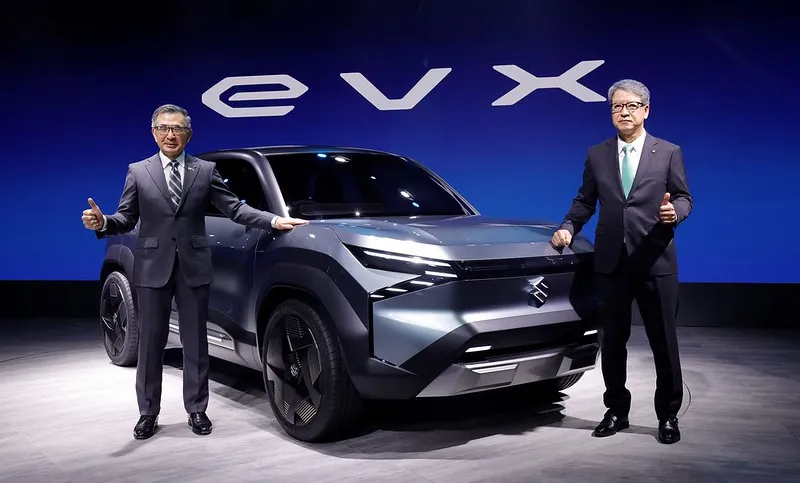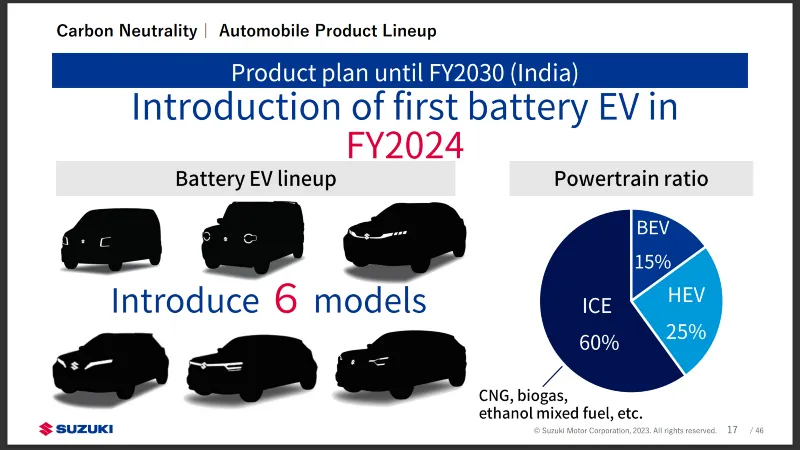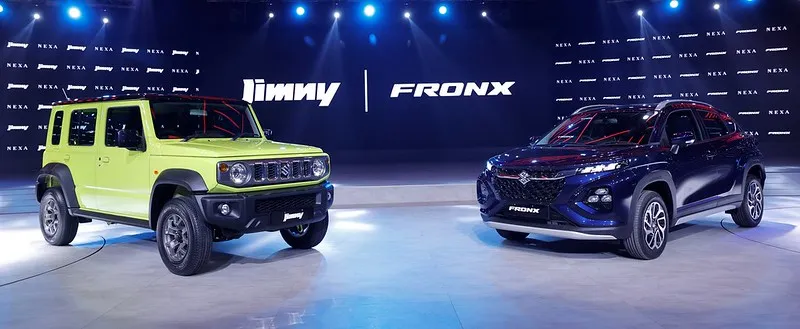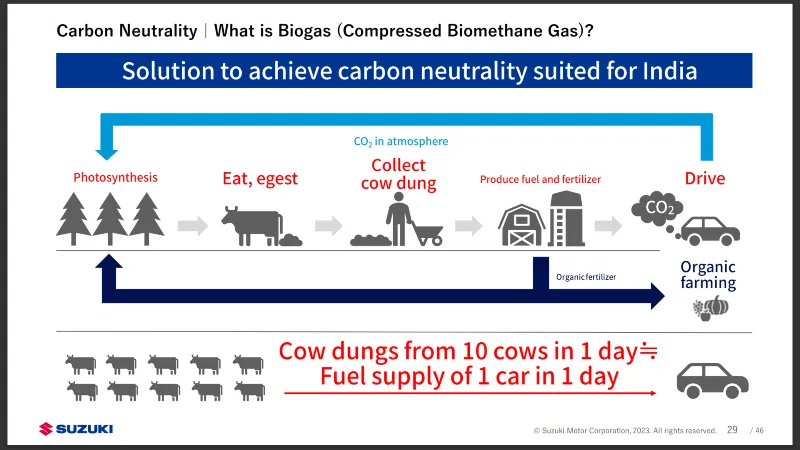Maruti Suzuki grand electrification plans– six EVs in India by FY2030
Suzuki’s growth strategy for FY2030 lays stress on carbon neutrality which the company aims to achieve by 2070 in India.
Maruti Suzuki pulled the largest crowd at the recently concluded Auto Expo 2023. Much of the credit goes to its two unveils— Fronx and the five-door Jimny. Another major attraction was the EVX concept which will take shape as the brand’s first electric vehicle.
Maruti has adopted a guarded approach when it comes to battery-powered vehicles. The company did launch Grand Vitara six months ago which comes with a strong hybrid powertrain, but nothing as far as fully electric cars are concerned. That said, the carmaker will be making the transition to fully-electric mobility soon, as per a recent report.

Maruti Suzuki EVX concept unveiled at the 2023 Auto Expo
Six new EVs by 2030
Suzuki Motor Corporation, Maruti’s parent company, released a report recently that reveals the carmaker’s electrification plan for India. Based on the target set by the Indian government, Suzuki aims to achieve carbon neutrality in the country by 2070.
Moreover, the Indo-Japanese carmaker plans to launch six cars in India by 2030 with the first electric vehicle (EV) slated to launch in FY24. Earlier reports hint at Maruti developing a new electric SUV based on a new electric skateboard platform that is co-developed by Suzuki and alliance partner Toyota. In all probability, this electric SUV is expected to be the production version of its EVX concept.

Maruti Suzuki to launch six EVs in India by 2030
The document confirms that the first fully-electric Maruti will hit Indian roads by the start of 2025. Apart from EVX, the company has teased five other EVs that will be launched in India in the future including the fully-electric WagonR and Jimny. Other EV models in the pipeline could include battery-powered versions of Brezza, Fronx and Grand Vitara.
Greener mobility on cards
Vehicles powered by internal combustion engines (ICE) will account for 60% of the company’s share in India by the end of this decade, Suzuki said in its document. At the same time, the carmaker also forecasts 25% of its total sales to come from hybrid electric vehicles by 2030, while zero emission battery electric vehicles will account for 15% of its total sales.

Electrified versions of Jimny and Fronz on cards
This indicates that Maruti will not only launch EVs but other forms of green vehicles in the near future in India including strong hybrids, CNG, biogas and flex fuel vehicles. Suzuki forecasts the Indian economy to grow from $1.6 trillion (Rs 130 lakh crore) at present to $13.5 trillion (Rs 1,113 lakh crore) by 2050.
Biogas project for India
Suzuki has also decided to invest in the biogas sector of India. In October last year, the company signed a memorandum of understanding (MoU) with the Indian government agency National Dairy Development Board and Banas Dairy, Asia’s largest dairy manufacturer, to conduct verification of biogas.
In India, biogas is derived from cow dung, which are dairy wastes that can be seen in rural areas. This biogas can be used for Suzuki’s CNG models that account for approximately 70% of the CNG car market in India. The carmaker will be investing 4.5 trillion yen, or Rs 2.82 lakh crore, till the end of the decade with an aim of doubling its turnover to Rs 4.39 lakh crore and contribute towards a carbon-neutral future.

Maruti Suzuki invests in biogas treatment in India
Out of the total investment planned, two trillion yen is planned to be invested towards "research and development expenses in areas including carbon neutrality such as electrification and biogas", it said. The remaining 2.5 trillion yen is planned as capital expenditure in facilities, including 500 billion yen for a BEV battery plant.
(Images courtesy: Suzuki Motor Corporation)
Edited by Akanksha Sarma







